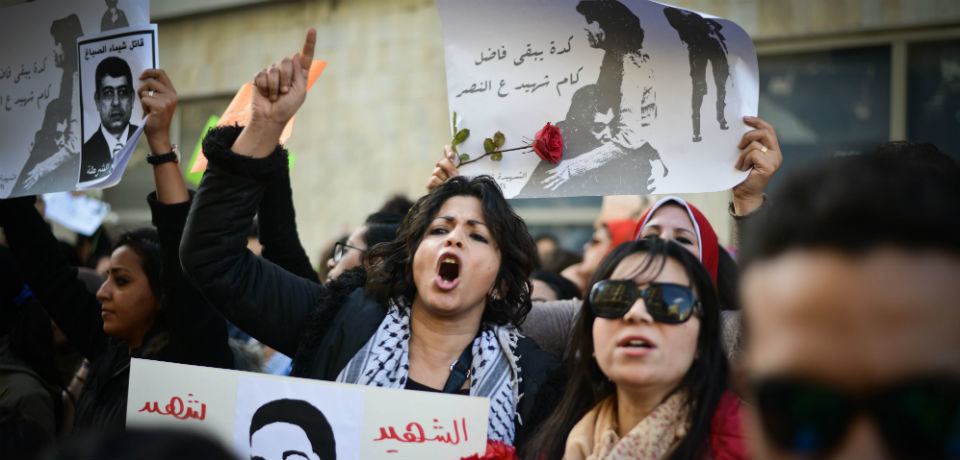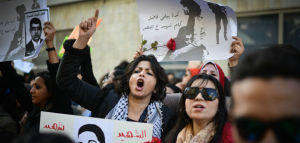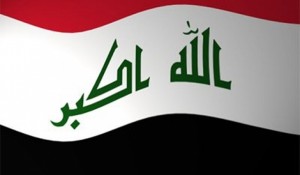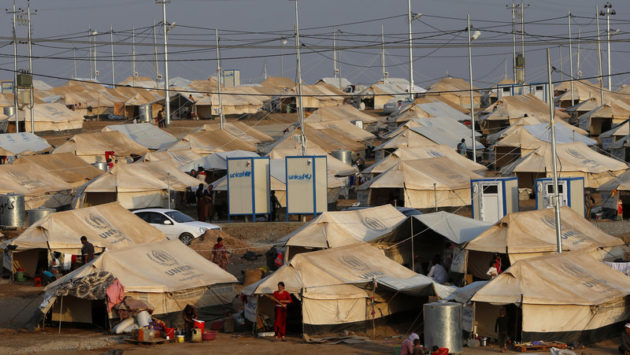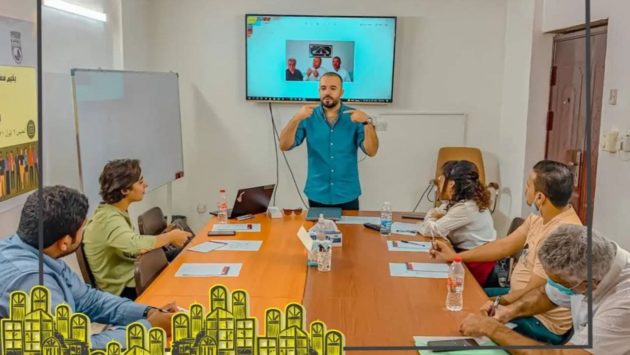Standing With Iraqi Women and Activists at the World Social Forum
By Suzanne DeRouen, ICSSI Volunteer from the USA (April 2015).
On March 28, the World Social Forum (WSF) in Tunis, Tunisia, opened with a march to the National Bardo Museum in a show of solidarity with the Tunisian people following last month’s terrorist attacks. As a participant in both the WSF and the march, I stood beside Iraqi women of the Shahrazad Campaign, including noted Iraqi journalist and activist Nada Omran, a teacher at Baghdad University and a member of the Iraqi Women Journalists Forum (IWJF), and other activists of the Iraqi Social Forum (ISF).
With their goal being to understand what major movements are taking place among women’s groups that affect women in the Arab world, ICSSI Shahrazad members were invited to participate in events, assemblies, and workshops with already-established women’s rights groups such as Women of the Maghreb Region and World March of Women (self-described as an “international feminist action movement connecting grass-roots groups and organizations working to eliminate the causes at the root of poverty and violence against women”), to name just a few.
Discussions centered on exclusion of and violence against women, women’s dignity and equality, economic justice, and the struggle for social justice and protection. Omran discussed her experience in round tables organized by the Italian NGOs Un ponte per… and COSPE, stating that more training and protection is needed for female activist journalists who are heavily discriminated against, stressing that Iraqi women needed to further strengthen their network on all Iraqi women’s issues. Said Omran on her WSF experience: “It gives power to me and my organization and for all Iraqi forum participants.”
Most noticeable among the thousands of workshops and convergence assemblies was the fact that all women’s groups seek to build solidarity between them and to bring to light the struggle of all Arab women in the post-revolutionary Arab world.
While new to identify myself as an American “activist” for Iraqi women’s human rights and dignity, I have nevertheless kept myself in the fold to some degree even before the September 11, 2001, attacks on the United States (I was living in New York City during the 9/11 attacks). Before that, I was active in minority rights in the United States, specifically African American issues in southern Louisiana. Shortly after the U.S. war against Iraq in 2003, I uprooted myself from my desk job and ended up working as the Senior U.S. Editor with Iraqi Kurdish media. After the siege of Mt. Sinjar in northern Iraq and the horrific suffering of the Yezidi minority at the filthy hands of Daesh in 2014, I knew there was no going back to things as they were before the savagery of Daesh was unleashed upon Iraq, the Middle East in general, North Africa, and elsewhere.
I researched volunteer organizations after the Sinjar seize, and I was accepted as a volunteer with ICSSI, with whom I have attended one conference each in Europe and North Africa. My first meeting with ICSSI in Oslo in 2014 exposed me to further daily injustices incurred by all Iraqis. Most of the Iraqi activists I have met so far have lost a loved one in war or have been affected in some other tragic way—there is nothing “normal” about their existence.
When ICSSI requested my presence at the World Social Forum (WSF) in Tunis in March, I was quick to say yes. They tasked me with observing and participating in workshops and assemblies that might effect change for women in the Arab world–especially Iraqi women. Such events go hand in hand with ICSSI’s nascent Shahrazad campaign, which focuses on Iraqi women’s issues such as women journalists and sexual harassment, women facing the brutality of Daesh, forced underage marriages, violence against women, and women as weapons in the war against terrorism. But I was also fortunate to sit in on other ICSSI workshops in Tunis.
The energy, knowledge, and conviction brought to the WSF by the Iraqi activists and their peers was heartbreaking and powerfully motivating. Iraqis’ challenges are exceptional, and while sitting in on their workshops, I knew that I was in the right place at the right time. I would learn a lot, of course; more importantly, however, I would fall deeper into solidarity with them. These activists have powerful words. I was left wondering how they are able to overcome life-altering trauma so often, without giving up or giving in, and yet still move forward.
All of ICSSI’s WSF workshops made me wonder where other American activists were (aside from those who work with ICSSI). Weren’t there other U.S. nongovernmental organizations or civil society organizations that felt obligated to step forward and push for a more civil and peaceful Iraqi society? Did they not see these causes through the same lens that I did? It’s something I cannot comprehend still.
Through occupation, dictatorship, terrorism and its continuing ripples of violence, Iraqi civil society activists have stepped forward in the face of immeasurable adversity and danger. Seeing them in action in Tunisia makes it clear to me that we cannot let them fight this battle for peace alone; we cannot let their youth feel as if there is no future and therefore there is no use in trying; and we cannot, with a clear conscience, turn our backs and watch them struggle with trying to live a “normal” life.

